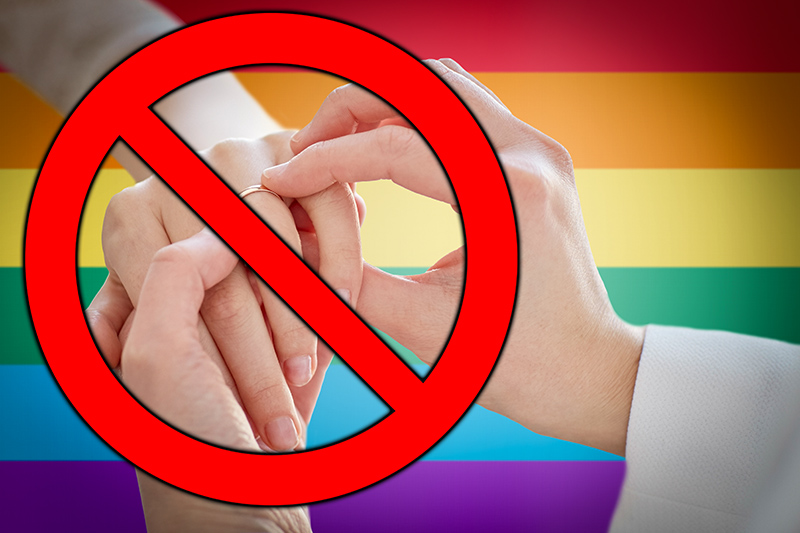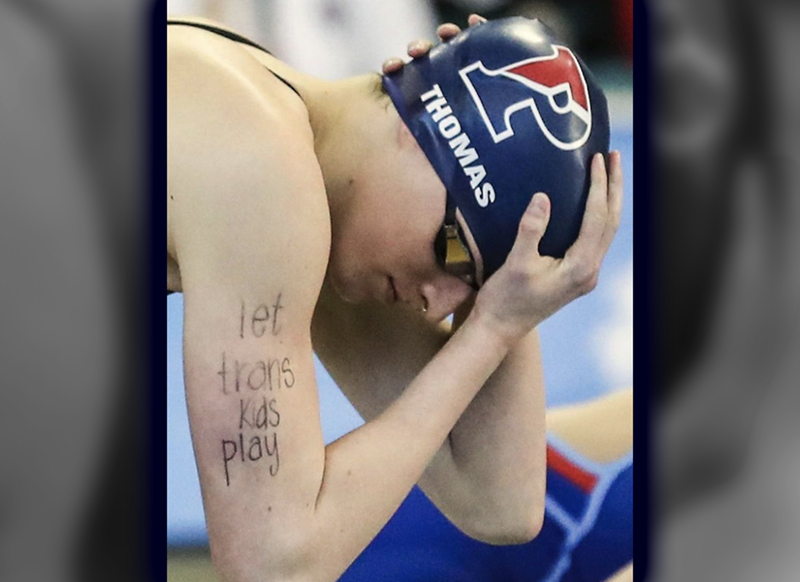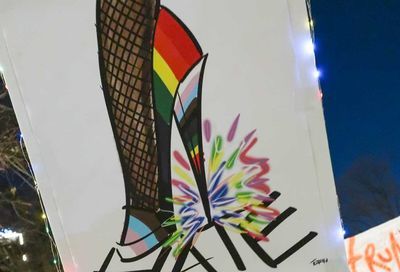Trump administration removes LGBTQ data from foster care and adoption reporting system
Advocates say lack of data will hamper efforts to find youth in foster care permanent placements

The Trump administration has removed an Obama-era requirement that the U.S. Department of Health and Human Services collect data on the sexual orientation of children or parents in the foster care and adoption system as part of a demographic profile.
The final rule, published on Tuesday, reduces the number of required pieces of information to be entered into HHS’s Adoption and Foster Care Analysis and Reporting System, or AFCARS, from 272 items to 183. Among the pieces of information that will no longer be collected include the sexual orientation of a child, foster parent, adoptive parent, or legal guardian.
By removing data on LGBTQ identity, the Trump administration is effectively erasing the issues around LGBTQ people in foster care or adoption, including LGBTQ-identifying youth and the barriers that same-sex couples who wish to be parents may face.
For instance, research from the American Academy of Pediatrics shows that nearly 30% of youth in foster care are LGBTQ, and those youth are twice as likely to report poor treatment than their non-LGBTQ peers.
LGBTQ youth in foster care typically experience more instability due to multiple temporary placements, longer stays in residential care, and have higher rates of hospitalization for emotional reasons, higher rates of homelessness, and higher rates of criminal justice involvement.
By eliminating the collection of data on this vulnerable population, the Trump administration could potentially hamper any reforms or changes needed to address these concerns, as the youths’ sexual orientation or gender identity is often the reason for their mistreatment or difficulty finding permanent placements.
Christina Wilson Remlin, the lead counsel for Children’s Rights, and one of several child advocates who had urged the administration to withdraw the proposed rule change before it was finalized, called the removal of LGBTQ data from AFCARS “a huge mistake that will harm the children we serve.”
“Thorough and accurate data is critical to ensuring that safety, permanency, and well-being remain the top priorities for children in out-of-home care,” she said. “This latest onslaught against facts puts politics over the best interests of children and makes LGBTQ youth and their outcomes invisible.”
Schylar Baber, a foster care alumnus and the executive director of Voice for Adoption, called the administration’s finalized rule “an unnecessary step backwards.”
“How can we make the right decisions about youth in foster care and those waiting to be adopted if we don’t have a robust and complete AFCARS data system?” Baber said in a statement. “Our foster care system is in crisis mode. We’ve waited 25 years for the AFCARS system to be upgraded. I am not sure we have much more time to wait, because our children are paying the price.”
See also: Judge allows South Carolina lesbian couple’s foster care lawsuit to move forward
Last week, advocates with the pro-LGBTQ organization Family Equality met with representatives from HHS and the Office of Management and Budget to urge them not to finalize the AFCARS rule, citing research that shows that LGBTQ youth are significantly more likely to be physically abused by their parents, and that familial rejection is a leading cause for their entry into the foster care system.
Family Equality has also argued that the collection of data on LGBTQ parents — who, according to the Williams Institute, are seven times more likely to foster and adopt than non-LGBTQ couples — would help agencies target their recruitment efforts in the hope of finding placements for youth in the foster care system.
“Unfortunately due to the current administration, any attempts at nationwide data collection related to sexual orientation, gender identity and expression and how that relates to safety, stability, well-being and permanency needs for youth in child welfare has come to a standstill,” Dr. Micki Washburn, an assistant professor at the University of Texas at Arlington School of Social Work. “That is why it is imperative that we collect this data through AFCARS, as otherwise we will not be able to get a clear picture of the needs and outcomes of these vulnerable youth.”
“It is outrageous that during National Foster Care Month, HHS is abdicating its statutory responsibilities to promote the safety and well-being of LGBTQ foster youth,” Julie Kruse, the director of federal policy at Family Equality, said in a statement. “States, tribes, and agencies cannot improve care and outcomes for these youth if they do not have data to measure their efforts.”
“In the midst of a global pandemic, the Trump-Pence administration chose to target some of the most vulnerable youth in the foster care system,” David Stacy, the government affairs director at the Human Rights Campaign, said in a statement. “LGBTQ youth are overrepresented in foster care, and this attempt to erase them and important data on adoptive and foster parents undermines efforts to address the marginalization, harassment and discrimination that LGBTQ youth in foster care and families face. HHS should prioritize supporting foster youth and young people, many who aged out of foster care without a family — including LGBTQ youth — and are losing safe homes and employment during this public health crisis.”
The rule was swiftly denounced by members of the Congressional LGBTQ+ Equality Caucus, who said it will open the door to discrimination against same-sex couples and stifle the voices of LGBTQ youth in the foster care system who are experiencing mistreatment.
“Every child deserves a safe and loving home, but unfortunately LGBTQ children and parents face significant discrimination in the foster care and adoption system,” U.S. Rep. Angie Craig (D-Minn.), a co-chair of the caucus who is raising four sons with her wife Cheryl. “As a mother, and as someone who faced adoption discrimination for being a part of the LGBTQ community two decades ago, I strongly denounce Secretary Azar’s rule change, and ask him to stand with children across the country who are seeking safe, supportive homes free from discrimination.”
“Our goal should always be to find loving and supportive homes for kids in need,” added Rep. Sean Patrick Maloney (D-N.Y.), a father of three. “This rule change is completely unacceptable. It will harm the safety and wellbeing of innocent children who are in our foster care system, and open the door to discrimination against parents who are ready, willing and able to provide a supportive home.”
Editor’s note: This story was updated to include reaction from the Human Rights Campaign.
Read more:
Transgender woman identified as victim in San Antonio barbershop slaying
Gay couple ‘humiliated’ after allegedly being told they couldn’t shop together
Turkish government frets that drawing rainbows will make children gay
Support Metro Weekly’s Journalism
These are challenging times for news organizations. And yet it’s crucial we stay active and provide vital resources and information to both our local readers and the world. So won’t you please take a moment and consider supporting Metro Weekly with a membership? For as little as $5 a month, you can help ensure Metro Weekly magazine and MetroWeekly.com remain free, viable resources as we provide the best, most diverse, culturally-resonant LGBTQ coverage in both the D.C. region and around the world. Memberships come with exclusive perks and discounts, your own personal digital delivery of each week’s magazine (and an archive), access to our Member's Lounge when it launches this fall, and exclusive members-only items like Metro Weekly Membership Mugs and Tote Bags! Check out all our membership levels here and please join us today!

























You must be logged in to post a comment.